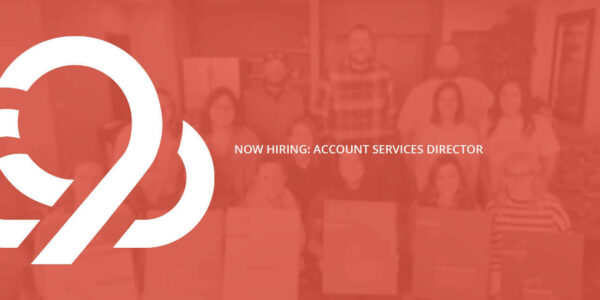
Smash That SERP: 5 SEO Trends to Help You Rank Higher in 2024
Search engine optimization (SEO) trends haven’t really changed that much over the last year.
Wait, you might say. Then why are you writing this blog?
They haven’t changed — but they have grown more nuanced. There are more gray areas, more pieces to tactics, and more things to keep track of in your SEO strategy.
Want to know what we’re researching and staying on top of in 2024?
Quality Over Quantity in Content
TL;DR: Be authentic and show value with human content.
Lots of people are talking about this in SEO spaces online, but it’s the top spot on this list for a reason. Quality, human content is even more important in the future of the internet.
We’ll talk more about AI in a bit, but the more content that gets put out there, the more diluted everything gets — and the less return (or ROI) there is on the generic content that’s easy to churn out.
Instead, create content that provides real value and shows who you are. Make it relevant to your ideal customer, and you’ll rise in the ranks of the SERP.
Use video when you can on your website.
What better way to show authenticity than showing yourself on video?
You don’t have to have a full, expensive production. Actually, the authenticity of a video is more important than its production quality.
But video can be more engaging than many other formats. In fact, research shows:
- Videos on your website make your site 53 times more likely to appear on the first page of Google results.
- Videos on your landing page can increase your conversion rate — up to 80%.
- Videos help users make purchase decisions (especially on ecommerce sites).
Plus, the transcript from that video gives you even more content to use on your site. These are important, given Google can’t index what’s in a photo or video without help.
How do I compete against AI content?
Easy. Create different, better content than AI can.
(Ok, maybe not that easy. But if it were easy, the machines could do it, couldn’t they?)
The important thing is to be human and provide value — and maybe have a policy in place about using AI in your business. People get more annoyed when you trick them into thinking something is real when it’s not than when you’re honest about it being written by AI.
AI and Search Engines: Change is Here (and There’s More to Come)
TL;DR: As long as people are searching online, SEO is still important — and SEO best practices are even more relevant.
It’s the thing to talk about these days, and we wouldn’t be being honest if we didn’t include it in this list. Artificial intelligence will continue to be a topic of discussion everywhere, though to continue being honest, it’s maybe been a bit over hyped in 2023.
That being said, AI is changing things — and that’s not going to stop in 2024 — but search isn’t going away.
So what does AI in search mean for SEO practitioners and people who own websites? SEO standard practices are even more important.
Here’s what to expect with Search Generative Experience (SGE).
If you haven’t heard, Google has been working on its Search Generative Experience, using AI to deliver different search experiences depending on the context of the search (a.k.a. query). Bing AI is also creating new ways to deliver search results to people using that search engine.
Essentially, SGE is about offering the user a search experience that matches the context of their search. Not every search needs 10+ blue links.
As a user, I like the idea of searching a question I have and getting the answer without me having to click through a bunch of different links.
And if I read the AI-generated answer and want to learn more? I click to your site, and my click is now more qualified. I’ll also probably stay on your site longer, sending good ranking signals to the search engine.
That’s why AI in search will lead to better traffic, qualified clicks.
A Microsoft principal product manager said just as much in an interview with Search Engine Land. Search is going to become more conversational — and lead to more qualified traffic to your site from organic (free) search.
Are keywords still important to SEO?
Yes. Keywords tell the search engine what your page or content is about.
That being said, it’s not as simple as matching the exact search term. (It hasn’t been this way for a while.) It’s more layered than that.
With AI search finding the best answers for a lot of user questions and searches, it’s now even more about answering the user’s question and matching their context.
Will AI take the job of an SEO strategist?
No. There are so many soft skills and other things that artificial intelligence cannot replicate. (Hubspot had a good article about this.)
Will AI take the job of content writers?
Think AI can write the best stuff? Nope, neither do I.
AI can help in a lot of ways, but it won’t take the place of a good writer anytime soon.
User Experience and Getting Indexed by Search Engines
TL;DR: Make sure your website loads quickly, and that it’s easy to find and use.
If Google, Bing, DuckDuckGo, etc., haven’t sent their bots to crawl your site, they don’t know you exist. If they don’t know you exist, how can they send searchers to your site?
That’s why a standard first practice we have for SEO clients is to submit your website sitemap through Google Search Console and Bing Webmasters. It’s also why we recommend that whenever you make a decent amount of changes to a page on your site, you resubmit it for indexing with those same tools.
Want to make your site easier to index by those bots? Make your site easier to navigate (for both people and bots).
That means having a site that loads quickly and works on both desktop and mobile devices. That may mean keeping your site simpler — but sometimes simpler is better.
Does it matter how fast my website loads?
We’ve said it before (as have most SEO experts), but if your site loads slowly, you’ll miss out on traffic, because people who click to your site leave when it doesn’t load, and search engines recognize that.
It should go without saying, but your site should be designed to work well and load quickly on mobile devices. After all, this is 2024 we’re talking about, right?
Even if we don’t have the flying cars predicted in Blade Runner or Back to the Future II yet, search engines think we deserve websites that load and work no matter what device we’re on (and will rank your site accordingly in search results).
Voice Search Continues to Grow
TL;DR: Target conversational phrases to optimize for mobile voice searches.
It’s estimated that 41% of adults and 55% of teenagers in the U.S. use voice search at least once a day. And that’s only going to grow.
Even I, an elder millennial with some Gen-X tendencies, use voice searches more often than I did even two years ago. (I honestly love using my smart watch to answer my kids’ random questions as they have them, so I don’t have to really leave the conversation.)
So what does that mean for your SEO? It’s time to also think about Voice Search Optimization (VSO).
It’s honestly not that scary, despite having to remember another acronym.
Use conversational keywords and phrases on your website.
People talk differently than they type. Typically, voice searches are longer than anything people type into a search engine. (There’s no delete button for your spoken words.)
So that makes long-tail keywords and phrases more important than ever.
Focus on those conversational phrases and answer questions that your users are asking. This increases the chances of your answer being used on the search engine results page (SERP) and in featured snippets.
Create an FAQ section on your site.
Adding frequently asked questions to your site is perfect for SEO, since it lets you target those longer searches and actual questions your users are asking.
Google rewards you for answering a searcher’s question, so the more you can do this, the better you’ll rank.
Create and optimize your Google Business Profile.
People often use voice search to find products or services that are near to their location — which makes local SEO critical. Your Google Business Profile gives the searcher a quick way to find you, right on the SERP.
Another benefit: your GBP gives you insight into how users are finding your website — including the search queries leading them to you (which can help you optimize your SEO and FAQs).
How do I find the questions my customers are asking?
Not sure what questions your customers are asking? Type your product or keyword into a search engine. Google will show you similar searches right there!
Then there is the “People also ask” section of the SERP. This can give a lot of good ideas for questions.
Social Media Search Optimization Becomes More Important
TL;DR: Social media can help you extend your reach both on and off search engines, so make sure it’s optimized for discoverability.
Yes, I’m throwing another type of search optimization at you.
The reason? Many social media profiles show up in search engine results. And what’s more, many social media users — 25% of 18 to 54-year-olds, actually — prefer to search on a social media platform vs. using a search engine.
Search engines have noticed (hence the search generative experience updates I mentioned above). Google has also said that your credibility on the web and on social will impact how quickly your site is indexed and its search engine ranking.
So, essentially, optimizing your social media profiles and content can help you expand your reach in search engines and beyond.
So how do you optimize your social media for search?
- Fill in as many details as possible in your profiles, and integrate important keywords into your profiles (without keyword stuffing).
- Don’t forget to link your profiles back to your website.
- Publish content that’s worthy of backlinks (meaning it’s authentic and provides value) and includes your keywords.
- Use alt text to make visual content more accessible (and searchable).
- Use subtitles in your video content, and say your main keyword out loud.
Is YouTube included in SEO or social media optimization?
YouTube is a bit of a hybrid of a social media platform, video platform and search engine — especially as it’s one of the most popular search engines in the world.
That being said, you optimize it similarly to how you would optimize for search on other platforms. Here are some best practices:
- Find and implement relevant keywords in your video title, description and tags. (This enhances discovery both on YouTube and other search engines!)
- Include transcripts to make your videos accessible, as well as improve search discovery.
- Use time stamps in your video descriptions if it’s longer than a minute — which gives you more opportunities to use important keywords.
Get Real ROI from Your SEO in 2024
Is SEO still worth it in 2024? Yes. It’s still the most cost effective way of getting in front of your customers at the right time in the long run.
Let us be your SEO ally. Get your digital assessment today and see if we can help your site rise up the SERP rankings.
Get Your Digital Assessment »



![Human vs AI A/B Test [Spoiler Alert: Humans Win!]](https://9clouds.com/wp-content/uploads/2024/02/Volvo-dealership-1-600x388.png)

